“Go clean up the toys in the yard,” Rob said to me through the slightly ajar door of his apartment. If my memory serves me well, Rob proceeded to shut the door without saying much more to me.
I was a bit taken back as I looked at the yard of the Lambertville, NJ residence. It had just a few scattered toys in it that would take me no longer than a couple of minutes to arrange. This wasn’t exactly the welcome that I had expected, nor was it the type of job I thought was going to make me enough money to pay for summer camp that year.
I proceeded to pick up the toys in Rob’s yard, and as I expected, was back at his door reporting that the job was complete in no more than a half hour.
“Alright, thanks,” he said through the door once again.
My day’s work was complete. Evidently, I had done enough for Rob to accredit the funds that he had agreed to give me for my work as a portion of my summer camp dues.
The year was 1992. I was twelve years old. It hadn’t crossed my mind that Pastor Rob may have been trying to teach me the value of hard work. I hadn’t thought for a second that the task of picking up toys in a New Jersey lawn was really about a youth pastor striving to invest in my character. Above all, I was completely unaware of how the relationship that would eventually develop between Pastor Rob (the youth pastor of a Presbyterian church in Lambertville, NJ) and me (a confused preteen from Lacey Park, PA) would change the trajectory of my life by intermingling me with a movement that had far preceded my time.
The Jesus People Movement.
From Summer Camp to the “Big K”
“I will pick you up and take you to the Big K.”
“The Big K,” I remember thinking. “... That’s a humorous way to refer to Burger King.”
It was, however, Dave’s way; and as a growing pre-adolescent, I was down with going and eating there, regardless of his nickname for the burger joint.
Dave was my summer camp counselor the year that I worked in Pastor Rob’s yard. He was one of Rob’s mentees who would assist with the youth group. I remember thinking it was so cool that he had a bad tattoo of an ace card on his bicep. Now, he was calling to invite me to a new youth group. But before that, we would make a much-needed stop for dinner at “the Big K.” This time around, the youth group experience would be a bit different than my previous experiences in the youth group at the Presbyterian church in Lambertville, NJ. The new group was in Bensalem, PA on the outskirts of Philadelphia — closer to my home in Lacey Park, PA.
Yet, one thing remained consistent — the leader, Pastor Rob.
This backstory takes a little bit of explanation.
My mother’s older sister is named Gladys and is affectionately known as “Auntie G” to her nieces and nephews. My mother and her siblings grew up in East (aka, “Spanish”) Harlem, NY — on 112th and Madison Avenue, to be exact — from the 1950’s until the 70’s. In the early 70’s, my Auntie G had the opportunity to relocate to Princeton, NJ. She subsequently moved with her host family to Lambertville, NJ — a couple of towns away from Princeton to a municipality nested on the eastern shore of the Delaware River. One day in 1976, while watching a televangelist, my Auntie G accepted Jesus and became a resolute follower of him. This meant that Auntie G needed to find a church.
Just a couple of doors down the street from where she once lived and worked was a historic Presbyterian Church. Auntie G became a member of that church, and several years after her arrival, Pastor Rob arrived with his family to serve as the youth pastor. As I grew into my preteen years, my Auntie G made every effort to involve me in the church’s youth events and summer camps that were coordinated by Pastor Rob.
This history is what eventually led to my trip to the “Big K” with Dave. Between the summer camp that I had attended and the trip to the “Big K,” Rob had taken another position as a youth pastor and worship leader at Calvary Chapel of Philadelphia. As to be expected when any strong, charismatic leader relocates, there was a group of protégés that followed Rob in his new venture. Dave was one of them. For some reason, Dave took interest in me — enough, at least, to invite me to dinner and take me to Pastor Rob’s new church.
I was oblivious to the reasons why people like Pastor Rob and (eventually) Pastor Dave would care about me. It took years before I would fully understand. In the meantime, their investment in me introduced me to a church that would be pivotal in my personal formation.
In the “Hood” and High Risk
It is safe to say that I grew up as a “high-risk child.” This is not because I came from an unloving family. It is because there were certain uncontrollable factors in my life that put me into the high-risk category of children that could eventually be a detriment to themselves or their society.
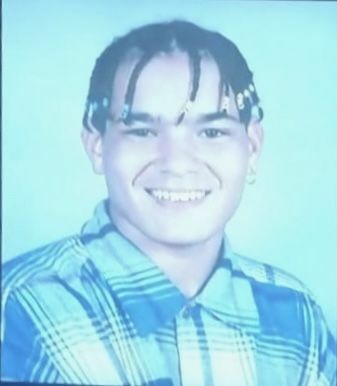
After my family relocated from Spanish Harlem to the South Bronx, we eventually found our way to Lacey Park, PA which, at the time, was a low-income housing sector that bore an unpleasant reputation in the suburban, middle-class areas that surrounded the neighborhood. There were certainly worse areas deeper into the city, but Lacey Park was the absolute “Hood” in comparison to the neighborhoods, and according to the people, that were around us.
Unfortunately, the generalization of what happens to the people that live in this kind of neighborhood played out in front of my eyes throughout my life. Numerous people that I grew up with have been murdered, shot and/or spent time in prison — mostly for drugs. I saw scores of street brawls, lived in very close proximity to a serious drug dealer, became familiar with the stories of addicts, and regrettably observed as friends and family members made all types of decisions that would adversely affect their lives and those around them.
This was the path that the church leaders saw that I could potentially take.
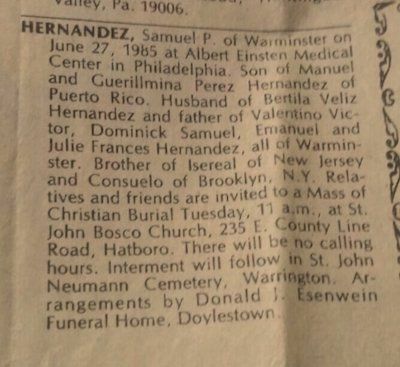
I didn’t really think anything of this until I left the neighborhood.
What would really set me at risk was the fact that my father, Sammy, died when I was only five years old. He left my mother, Chelo, behind with four children under the age of ten. My mother did not have a high school diploma at the time of my father’s passing.
The church leaders like my Auntie G, Pastor Rob and Pastor Dave knew that the way of the streets could be an instinctive path for me. They encouraged me to turn to the church, find companionship with Christ and seek camaraderie with fellow Christians. Calvary Chapel of Philadelphia was where this would begin for me and, eventually, for my entire family.
The Movement Moves Eastward
The Calvary Chapel “movement” didn’t really start as much of a movement at all. Multiple histories of its development have been told/published that maintain the following details as common denominators: Pastor Chuck Smith, an experienced minister with a somewhat jaded view of denominationalism, began pastoring a singular church called “Calvary Chapel” in 1965. Fundamental to Chuck Smith’s philosophy of ministry was teaching through the “whole counsel of God,” from Genesis to Revelation. Teaching the Scriptures at a level that was appropriate for the people and applicable to their daily lives resulted in tremendous congregational growth that attracted a diverse group of interested parties. The church grew so much and so quickly that they had to meet in a tent while waiting for a facility large enough to be built for the growing number of parishioners. Calvary Chapel’s low liturgy, displeasure with traditional denominationalism, acceptance of contemporary music and practical Bible teaching opened the door for all types of people to come and be a part of this awe-inspiring trend within the church.
This inclusiveness even extended toward hippies. Hippies that may have been rebuffed by traditional churches as they searched for fulfillment in drugs, promiscuity, religious fads and anything else their day had to offer, now had a home at Calvary Chapel of Costa Mesa.
Joe Focht was one of those hippies who spent his early twenties searching for the meaning of life in the drug and new age scenes. He was introduced to Pastor Chuck Smith at Calvary Chapel of Costa Mesa, shortly after having become a believer in Jesus. In 1981, after having been deeply shaped by the teaching ministry of Pastor Chuck Smith, and having been deeply influenced by Calvary Chapel’s philosophy of ministry, Joe Focht moved back to his native city of Philadelphia and began a Bible study with about 20 people.
That small Bible study eventually turned into Calvary Chapel of Philadelphia.

The reach of Calvary Chapel of Philadelphia today can be summarized through a statement on their website:
Today, some 8,000 adults attend Calvary Chapel of Philadelphia with over 4,000 children enrolled in our Sunday School ministry. In the same way that Calvary Chapel of Philadelphia was born out of Calvary Chapel of Costa Mesa, we have also been blessed to witness the birth of an additional 20 Calvary Chapel Fellowships throughout the Delaware Valley area. Home fellowships and additional Bible Study groups have also begun in our area with the potential of giving rise to their own “Calvary Chapels.” [1]
It was started by a former hippie — one of the original Jesus People.
The same philosophy of ministry that was so inviting to the unconventional hippies who wandered the beaches of California in the 60’s and 70’s made its way into my East Coast, low-income housing sector by the mid-90’s. From hippies to the hood, the Calvary Chapel movement had a tremendous influence on shaping a generation of Christians of all different colors and socio-economic statuses, in countless geographical locations.
Expositional Teaching
Our family had been “churched” before we came across Calvary Chapel of Philadelphia. This fact causes us to ask: Why was this particular church so impactful in our lives and the lives of those in our neighborhood that started to attend this congregation? Calvary Chapel was different than any other church that we had ever attended. Here are a couple of reflections:
- Our family came from a traditional denominational church that sang hymns. At Calvary Chapel of Philadelphia, there was loud music consisting of guitars and drums. The worship experience was something that I had never observed anywhere else, and, in fact, I would have likely considered it irreverent if it were to have taken place in my former church building.
- In our previous church, the pastor would wear a clergy shirt with a priest’s collar and was adorned with an elegant robe when conducting the service. At Calvary Chapel of Philadelphia, Pastor Joe Focht forever wore a Hawaiian shirt, never tucked into his jeans — Jesus-People-Style to a T.
- Our former church had multiple services in a commodious and elegant building that was probably only filled on Christmas and Easter. Every single service felt like Christmas and Easter at Calvary Chapel of Philadelphia. All of the meetings in the small storefront were packed to capacity as if it were a center-city cathedral on a holiday. This storefront eventually became too small to hold the growing number of congregants, so—in good Jesus-People fashion—the church made its permanent and unorthodox home in the shelter of an old meter factory.
I must admit that as a nascent teenager, I was not sure what to think of all of this. It seemed like something special was happening at the congregation — the church was growing and new people every week were making professions of faith. Yet ironically, this all seemed so rough around the edges to me — a kid from the “hood.” Today, I might explain my bewilderment of the ministerial fruit despite the unorthodoxy of Calvary Chapel by theological adages like, “God has his hand on the ministry” or “the Lord is doing a great work.” As a teenager, I was not so theologically sophisticated — for better or for worse. Despite my incomprehension of all of the implications of the changes between my traditional church and Calvary Chapel, there was one thing that kept me coming back: The expositional teaching.
Teaching the Bible verse-by-verse and chapter-by-chapter from the beginning to the end — over and over again. Even though there were a couple of things that made the Calvary Chapel churches unique and thereby impactful among a diverse group of people (e.g., contemporary and contextualized worship experiences), what made them special was their dedication to teaching through all of the Scriptures and insisting upon their continued relevance in their entirety. This is what attracted the Jesus People to their churches, and this is what attracted me.
I had never been part of a church that went through the entire Bible. I quickly fell in love with analyzing the obscure sections of the Bible. Prior to Calvary Chapel, I had only attended churches in which the pastors taught short, topical homilies, that I considered to be hardly relevant to what we were going through during that time as a family. Calvary Chapel of Philadelphia took pride in going through the Bible in its entirety, encouraging people to read it on their own, and apply it to their contemporary circumstances. The idea that God could still speak through words into the contemporary situations of the church and my personal life was mind boggling to me.
The Enduring Influence
I wish I could say that things were fine and dandy in my Christian walk upon finding the Calvary Chapel churches.
This simply was not the case.
I was not particularly invested in the church through my high school and early college years. In fact, during my first two years of college, I barely attended church and hardly read the Bible. Yet one thing stuck with me throughout my personal vicissitudes: The importance of going through the entire Bible in one’s personal reading, and this type of teaching within the context of the church.
During my second year of college, I went through a time in which I was questioning everything. I never lost faith in God, per se, but I found myself in such a terrible situation (because of my own wrongdoings) that I could not have imagined a way out. One night, I sat at my desk in my dorm room contemplating how far I had slipped and futilely wondering how to make things better. My poor roommate, Pete, who was one of the kindest people that I knew at the time, woke up in the middle of the night and saw me disconsolate, just sitting at my desk. He asked me what my problem was, and I started to tell him my story.
That is when Pete proceeded to promptly fall asleep.
It had been a while since I had picked up the Bible for personal study. However, when Pete fell unconscious, I forthwith turned to my desk and saw a Bible that had been gifted to me a couple of years prior, on the top shelf of my desk. I remember thinking to myself, “If Pete cannot even listen to me, then maybe I should try and read the Bible.” It turns out that my roommate falling asleep that night was one of the best things that could have ever happened to me.
I began voraciously reading books of the Bible. Whether I understood the contents therein or not, I just kept reading. I resolutely determined to go through the “whole counsel of God,” a determination that incontrovertibly bore the influence of the Calvary Chapel churches.
After that year of college, I moved to Puerto Rico to study at the University of Puerto Rico.
During this time, my fervency for studying all of the Bible grew. An understanding of the necessity to be involved in the life of the church and fellowship with other like minded people also grew. So, when I moved back to the United States, I came with a renewed interest in the Scriptures and their application within the context of the local church. My graduate school experience took Gaby and I (married in 2002) to New York City, where we immediately searched for and began attending a Calvary Chapel church for the simple fact that we knew that a church associated with the Calvary Chapel movement would teach through the entirety of the Scriptures. We ended up at a church called Harvest Christian Fellowship in midtown Manhattan, a church whose name and ministry were inspired by the notable Harvest Christian Fellowship church in Riverside, CA, which is pastored by another prominent player in the Jesus People movement, Pastor Greg Laurie.
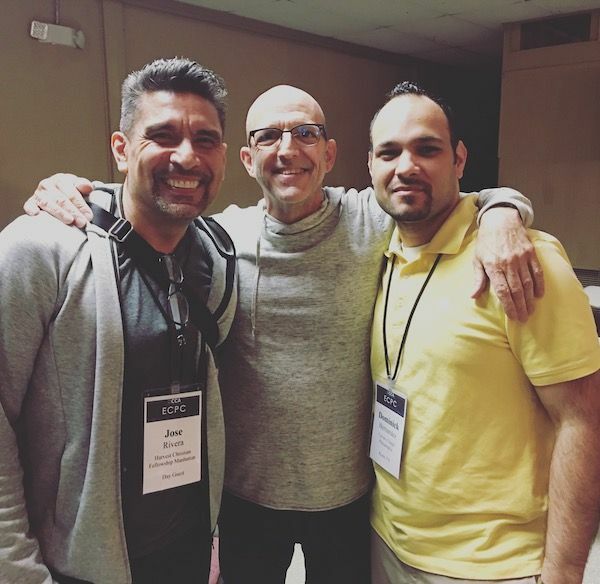
My interest in studying the whole Bible eventually led to a desire to teach the Bible. I reasoned that studying at a Bible college for a year or so would be enough to train me to teach small group Bible studies. The only Bible college that I had heard of at that time was the Calvary Chapel Bible College, and so I naturally started my inquiry concerning how I could go about accomplishing my vocational goals there. The woman with whom I spoke in the office of admissions at the Calvary Chapel Bible College did not think that the college would be a good fit for a married, 26-year-old person who already had a graduate degree, since most of their students were teenagers who came straight out of high school.
Yeah, retrospectively, I consider that to be a pretty good call.
The admissions counselor recommended a school of ministry in Costa Mesa, CA that was more suitable for the type of training I wanted to pursue and was directly connected to Calvary Chapel Costa Mesa — Pastor Chuck Smith’s church.
In the summer of 2006, Gaby and I packed up our little apartment in Jackson Heights, Queens, NY and moved across the country to Costa Mesa, CA to attend the Calvary Chapel School of Ministry.
My story had come full circle.
I began my journey at Calvary Chapel of Philadelphia — a ministry that Pastor Chuck Smith was so influential in establishing. Years later, I attended the Calvary Chapel School of Ministry directed by Pastor Carl Westerlund — another church leader who lived in Southern California throughout the Jesus People Movement of the late 60’s through the 70’s. The philosophy of ministry — and more specifically, the emphasis on the expositional teaching of the Scriptures — that was so influential in bringing hippies to faith at Calvary Chapel of Costa Mesa, and in beginning the work at Calvary Chapel of Philadelphia, guided my path at the Calvary Chapel School of Ministry, where I learned to teach the Scriptures, and learned how to teach others to teach the Scriptures.
There is one more thing that happened at the Calvary Chapel School of Ministry that became crucial to my personal formation. While I was at the School of Ministry, I
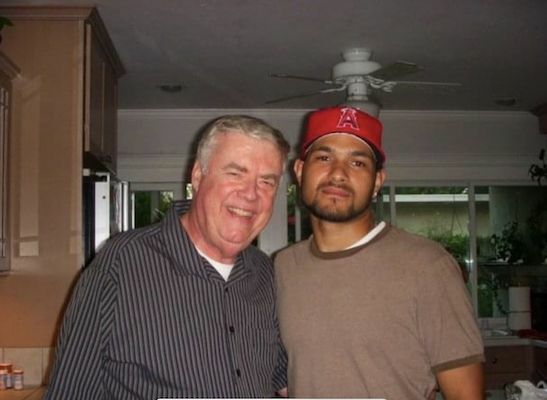
studied with people who had the same view of the Scriptures as I had but, for some reason, some were much more inclined to study Greek and teach from the New Testament than to study Hebrew and Aramaic and teach from the Old Testament. There was no overt theological or philosophical reason for this. Yet, these practices were essentially inconsistent with teaching the “whole counsel of God.” I deduced that studying Greek, and reading from and teaching the New Testament more than the Old Testament — despite the fact that the Old Testament is significantly longer — were essentially customs that Christians defaulted to because of a belief that the New Testament is the culmination/revelation of the Old Testament as well as the struggle to develop practical application from difficult Old Testament passages. It was around this time that I determined to spend the rest of my life helping Bible teachers interpret the most difficult sections of the Old Testament and apply the principles therein to the life of our community. This goal led to a dissertation on the eminently complex and onerous book of Job.
--- --- --- --- ---
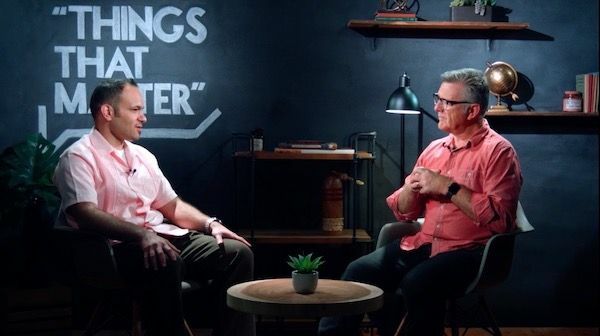
This personal story continues for me in California right now.
A generation ago, Pastor Chuck Smith dared to go against the grain of what was accepted within his church context and simply teach the Scriptures expositionally. This pushback against the conventionality of the systems with which Pastor Chuck was familiar eventually led to the inclusion of the unorthodox hippies. In this sense, Pastor Chuck and the hippies were fascinatingly alike — irrespective of their drastically contrasting appearances.
The Jesus People Movement eventually unified many types of people. From Pastor Chuck, to Pastor Rob, to Pastor Dave, to Pastor Carl and now to Pastor Dominick Hernández. My current vocation as a lay pastor and current profession as a professor of Old Testament who is passionate about teaching the most perplexing sections of the Scriptures, can be directly tied to the movement that started with a bunch of hippies far from me (i.e., geographically, ideologically, etc.) and eventually made its way into my neighborhood.
This is indeed a story of how a Christian community’s dedication to the Scriptures can influence an entire generation.
Notes
1. https://www.ccphilly.org/histo...
Biola University’s Ablaze Conference 2021, which will be held on campus October 7-9, is focused on celebrating The Jesus People Movement.
 Biola University
Biola University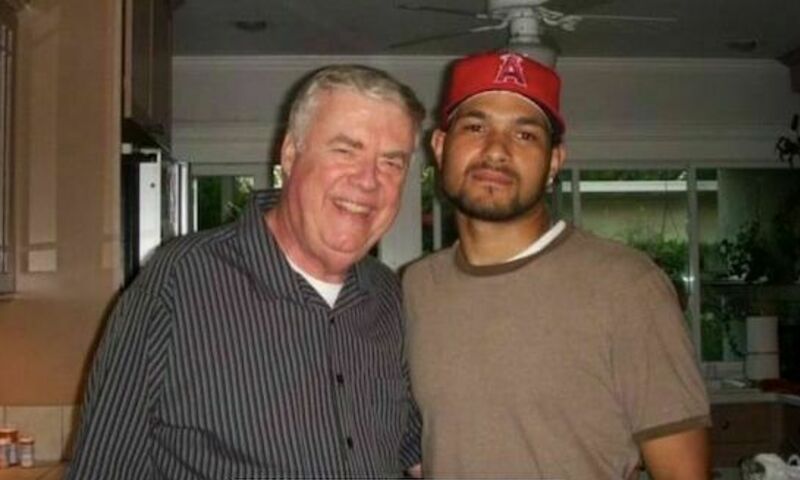

.jpg)
.jpg)

